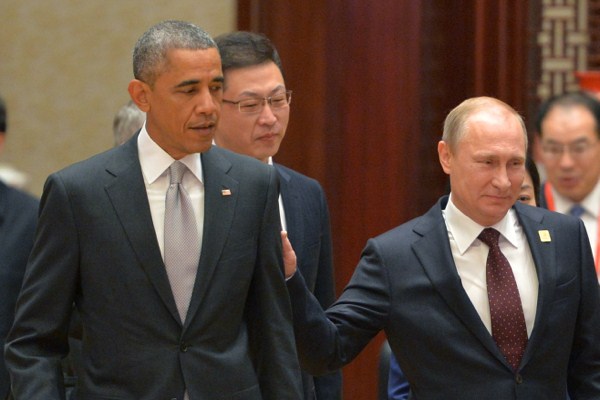Because no two countries in the world share completely overlapping interests, the responsible leader must assess under what conditions disagreement with another state warrants interfering with beneficial ties.
Russian President Vladimir Putin’s recent summit with Turkish President Recep Tayyip Erdogan in Ankara this past week illustrates the delicate dance of this kind of selective partnership. There are serious divisions between Ankara and Moscow over several fundamental foreign policy issues, ranging from Russia’s longstanding support for the maritime claims of Cyprus, the northern part of which is recognized by Turkey as an independent country, to Turkey’s opposition to the regime of Syrian President Bashar al-Assad, a Russian client. Many Turks are also concerned about the fate of the ethnically Turkic Crimean Tatars now that Crimea has been unilaterally annexed by Russia.
Yet both Putin and Erdogan have found a way to compartmentalize these disagreements without minimizing their importance, so as not to allow them to spill over and wreck the immense progress that has been made in Russia-Turkey relations over the past 15 years. Despite being a NATO member, Turkey has been disinclined to follow the United States and Europe by imposing sanctions on Russia for its support of separatist forces in eastern Ukraine. Bedazzled by the dream of becoming an indispensable energy hub for Europe with a new energy pipeline transporting Russian reserves across the Black Sea, Ankara prefers to work to accommodate Russia rather than to isolate and diminish its influence in global energy markets. In return, by the end of the decade, Turkey could be guaranteed a generous supply of cheap energy, as well as greater energy self-sufficiency through Russian construction of nuclear power stations in Turkey. The benefits of continuing a partnership with Russia, therefore, outweigh the substantive disagreements over the future of Syria.

